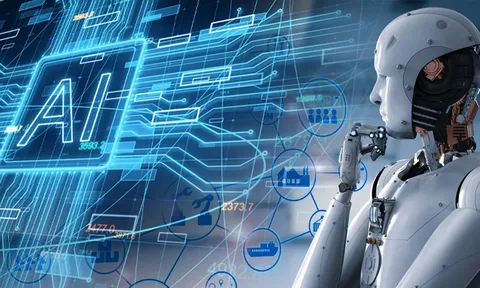In today’s fast-paced world, artificial intelligence (AI) and automation are reshaping how we live and work, often in ways we might not even notice. While automation focuses on executing repetitive tasks based on predefined rules, AI introduces self-learning capabilities, allowing systems to think, adapt, and improve over time. This distinction sets the stage for a transformative future where both play a pivotal role.
What Automation Looks Like in Everyday Tasks
Automation excels in simplifying repetitive, monotonous tasks, enabling greater efficiency. Some common applications include:
- Manufacturing processes: Streamlined assembly lines reduce human error and improve production speed.
- Managing spreadsheets: Automated systems handle data entry, sorting, and analysis effortlessly.
- Sending invoices: Tools ensure timely delivery and payment tracking without manual intervention.
- Personalized mailing lists: Platforms tailor email campaigns for specific audiences based on predefined criteria.
These applications free up human effort for more creative and strategic activities, redefining productivity across industries.
AI in Action: Enhancing Everyday Experiences
AI demonstrates its potential through self-learning and adaptability. Here are some examples:
- Medical advancements: AI systems detect diseases like cancer in radiographs by analyzing patterns in historical data.
- Home assistants: Devices like Alexa or Google Assistant provide information, manage schedules, and even order groceries with voice commands.
- Security monitoring: AI-powered apps detect unusual patterns in surveillance systems, ensuring prompt alerts and actions.
Even everyday tools we take for granted harness AI. Google Maps calculates optimal routes using machine learning to analyze traffic patterns, while predictive texting improves communication speed and accuracy. Amazon, Netflix, and Spotify personalize recommendations, making shopping, streaming, and listening more engaging.
AI and Automation in Business
In the corporate world, AI and automation have become indispensable. According to the UK Office for National Statistics’ Business Insights Conditions Survey, 16% of businesses already use AI applications, primarily for improving cybersecurity and operational efficiency.
Since AI’s inception in the 1950s, its role has evolved significantly, down to the launch of ChatGPT in 2022, which popularized generative AI. These advancements are revolutionizing industries by automating mundane tasks, enhancing customer experiences, and enabling better decision-making.
Practical AI and Automation Solutions for Small Businesses
While large corporations often dominate discussions around AI adoption, small businesses can also leverage these technologies to drive growth. Affordable and accessible AI-powered tools allow small enterprises to unlock efficiency and innovation without significant investment.
Here are some areas where small businesses can benefit:
- Automated Email Marketing
Platforms like Mailchimp enable businesses to send tailored emails based on customer actions, ensuring timely communication and maximizing engagement throughout the sales funnel.
- Streamlined Document Sharing
Tools like Google Docs automate collaboration by syncing updates in real time, fostering seamless teamwork even in remote environments.
- Recruitment Tools
Applicant Tracking Systems automate the sorting and filtering of job applications, allowing businesses to focus on interviewing the best candidates.
- Automated Accounting
Invoicing software like Sage Business Cloud automates payment tracking and data entry, freeing up time for financial planning and strategy.
- Customizable Workflow Automation
Tools such as IFTTT (If This Then That) allow businesses to automate tasks like time tracking, email attachment saving, or calendar updates, enhancing productivity.
- Team Management Platforms
Solutions like Asana and Slack streamline task management, automate reminders, and facilitate communication within distributed teams, minimizing the need for traditional meetings.
- Chatbots for Customer Service
AI-powered chatbots, from basic Facebook Messenger bots to advanced custom solutions, handle inquiries, automate bookings, and provide 24/7 customer support, enhancing the customer experience.
The Future of AI and Automation
AI and automation continue to evolve, with advancements like Deep Learning promising even more transformative impacts. These technologies replicate human brain functions to recognize patterns, make real-time decisions, and improve system responsiveness. Applications range from customer service to self-driving cars, making these technologies central to future innovation.
While concerns about job displacement remain, the broader potential of AI and automation lies in enabling humans to focus on tasks that require creativity, empathy, and strategic thinking. By automating repetitive processes, businesses can redirect resources toward areas of greater value.
Conclusion
AI and automation are no longer futuristic concepts—they are integral parts of our daily lives and businesses. For small businesses, adopting these technologies can lead to improved efficiency, better customer experiences, and long-term growth.
As these technologies continue to advance, the opportunities for innovation are boundless, paving the way for a future where humans and machines collaborate seamlessly to achieve extraordinary outcomes.
